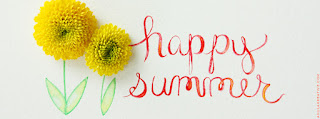ENGLISH
Today we are going to learn how to use the words ALREADY AND YET.
YET
We use it to emphasise that we expect something to happen
soon.
Yet is used in negative
sentences and questions.
These are some examples with the word yet. It can be
translated as "todavía" in negative sentences or as "ya" in
questions.
Have you finished
your homework yet?
I haven't finished it yet. I'll do it after dinner.
Where's
Sam? He hasn't arrived yet.
Yet comes at the end of the sentence or question.
ALREADY
Already used with the present perfect means 'before
now'. We use it to emphasise that something happened before something else or
earlier than expected.
It can be translated as "ya" in Spanish.
I have already
spent my money.
He wanted to see Harry Potter but I have already
seen it.
Already can
come between the auxiliary (have) and the main verb or at the end
of the clause.
Now we are going to copy the grammar wall that you can find on page 78 in your notebook.
Answers to yesterday`s questions:
A.B Pg. 70
Ex. 1 .
1. Choose the music 2. Blow up ballons 3. Sweep the floor 4. Make a cake 5. Sell tickets 6. Decorate the room 7. put out the food 8. Go shopping
Ex. 2.
1. Make a poster 2. Serve drinks 3. Clean the furniture 4. Put out the food 5. (Example) write the time and place of the party and on a piece of paper and give it to your friend 6. (Example) mix flour, butter, eggs and sugar together and bake.
NATURAL SCIENCE
Today we are going to concentrate on insulator and conductor materials.
- INSULATOR. Materials that are good at keeping things hot or cold are called insulators. During the winter we wear fabrics like the wool that is an insulator to trap the heat around the body.
- CONDUCTOR. These materials are good at allow heat to pass through them. For example the metal in the saucepan.
This video can help you to understand conductor and insulator materials.
This second video is an experiment. You can try it in your house, but always with your parents. In the experiment you can observe how the butter melts in the metal spoon because metal is a good conductor of the heat.
Tuesday 14th answers:
PG 67
EX 2: Without the sun, the Earth would be a cold, dark place. There would be no plants, no photosynthesis, no oxygen, and as a result no higher life forms.
Ex 6:
- LIGHT: torch, light bulb
- HEAT: radiator, hair dryer
- BOTH: Fire, candle and also light bulb is possible








